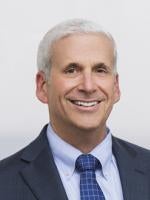On August 23, 2024, the US Attorney’s Office for the Central District of California, which is the largest judicial district in the United States, announced a new Voluntary Self-Disclosure and Whistleblower Pilot Program. The Whistleblower Program is designed to incentivize individuals to report corporate crime and financial fraud to the government and, in turn, increase the pressure on companies to voluntarily self-disclose misconduct. In exchange for full cooperation with the investigation, whistleblowers may be able to avoid prosecution for their own misconduct and obtain a non-prosecution agreement (NPA) or deferred prosecution agreement (DPA).[1]
This Whistleblower Program follows on the heels of the US Department of Justice (DOJ) announcing the details of its Corporate Whistleblower Awards Pilot Program. Other US Attorney’s Offices, including the Southern District of New York and Northern District of California, also announced similar whistleblower programs earlier this year. These whistleblower programs are the latest example of DOJ’s increased focus on investigating and prosecuting corporate crime.
In Depth
The stated purpose of the Central District of California’s Whistleblower Program is to “encourage early voluntary self-disclosure and promote effective enforcement of criminal laws.”
First, the Whistleblower Program only applies to individuals who report certain types of alleged misconduct. The program specifically focuses on alleged criminal conduct involving “public or private companies, exchanges, financial institutions, investment advisers, or investment funds involving fraud or corporate control failures or affecting market integrity.” It also applies to “state or local bribery” and “fraud relating to federal, state, or local funds.” Notably, however, the Whistleblower Program does not apply to individuals who report Foreign Corrupt Practices Acts (FCPA) violations, bribery of federal officials, campaign finance misconduct, tax offenses, and environmental crimes.
Second, to be entitled to an NPA or DPA, a whistleblower must satisfy the following criteria:
- The alleged misconduct cannot be publicly known and cannot be known to the US Attorney’s Office or DOJ at the time of the disclosure.
- The disclosure must be made voluntarily. The disclosure cannot be made in response to a government inquiry, a reporting obligation, or prior to an imminent threat of disclosure to the government.
- The whistleblower must provide “substantial assistance in the investigation and prosecution of at least one equally or more culpable” person. The whistleblower cannot have played a “leading role” in the alleged misconduct. The whistleblower must also agree to “cooperate fully” with the US Attorney’s Office’s prosecution and investigation.
- The whistleblower must “truthfully and completely” disclose all prior criminal conduct.
- The whistleblower cannot be: (a) a federal, state, or local official; (b) a law enforcement agent or official; or (c) the CEO or any other individual who exercises primary control over a public or private company.
- The whistleblower cannot have engaged in certain criminal conduct, including violent crimes, sex offenses, and terrorism or national security offenses. The whistleblower also cannot have any prior felony convictions or those involving fraud or dishonesty.
Third, even if the whistleblower does not meet the specific program requirements, the US Attorney’s Office may still offer the whistleblower an NPA or DPA in exchange for his or her cooperation. In exercising this discretion, the US Attorney’s Office will consider many of the same factors described above, including the extent of the cooperation, the whistleblower’s role in the alleged misconduct, and the adequacy of noncriminal sanctions, such as civil settlements with government regulators.
KEY TAKEAWAYS
- The Central District of California, which serves seven counties (including Los Angeles) and a population of nearly 20 million people, is increasingly focused on investigating and prosecuting corporate and financial crimes. Its Whistleblower Program comes less than a year after US Attorney Martin Estrada launched a Corporate and Securities Fraud Strike Force targeting complex corporate crimes, abuses by company insiders, and offenses impacting the US financial system. Companies doing business in the Central District of California should be aware that the US Attorney’s Office is devoting significant additional resources to corporate investigations and prosecutions.
- The Central District of California’s Whistleblower Program is the most recent example of DOJ’s department-wide focus on voluntary self-disclosure. The US Attorney’s Office and DOJ hope the threat of increased whistleblower activity – with significant benefits for individual tipsters – will pressure companies to scrutinize their compliance programs more closely and voluntarily self-disclose corporate misconduct.
- Individuals may still face substantial personal exposure if they attempt to take advantage of the Whistleblower Program. Although potentially obtaining an NPA or DPA is a significant benefit, there is no practical way for whistleblowers or their counsel to determine in advance whether the whistleblower will satisfy all the criteria to be eligible for such agreements. The Whistleblower Program also vests considerable discretion in the US Attorney’s Office and individual prosecutors to determine whether an NPA or DPA is appropriate. There is no mechanism for a whistleblower to challenge the final determination. Before making any disclosures to the US Attorney’s Office or DOJ, potential whistleblowers and their counsel should carefully consider whether disclosure is in the whistleblowers’ best interests.
- It is unclear whether the Central District of California’ Whistleblower Program or any of the other DOJ whistleblower programs will have a substantial impact on the number of corporate investigations or prosecutions going forward. Individuals with substantial knowledge of or involvement in corporate misconduct may be hesitant to disclose that misconduct to the government. Other whistleblower programs that offer financial awards, such as the US Securities and Exchange Commission’s whistleblower program, the False Claims Act, or the Financial Crimes Enforcement Network’s enhanced whistleblower program, are more likely to drive increased enforcement activity.
- The best way for companies to minimize the risks of increased whistleblower activity and government enforcement actions is to implement a robust compliance program, subject to periodic review. An effective compliance program should now be viewed as a necessity. Among other things, companies should put in place policies and procedures that encourage employees to report any potential misconduct internally instead of to DOJ so the company can thoroughly evaluate the issues raised and determine whether additional actions, including voluntary self-disclosure to the government, are necessary or appropriate.







 />i
/>i
